 |
 |
 |
| |
CANCER RATES IN PATIENTS WITH CHRONIC HEPATITIS C IN A LARGE U.S. HEALTH MAINTENANCE ORGANIZATION.....cancer rate 2.5 times higher among HCV+, even when liver cancer is excluded rate is almost 2 times higher
|
| |
| |
......"When all cancers are considered the rate is 2.5 times higher in the HCV cohort; when liver cancers are excluded, the rate is still almost 2 times higher......Known cancer types associated with hepatitis C include non-Hodgkin's lymphoma, renal and prostate cancers, as well as liver cancer.....The researchers suggest an extrahepatic manifestation of HCV may be an increased risk of cancer"
Reported by Jules Levin
EASL 2015 April 22-26 Vienna Austria
Anders H. Nyberg1, Ekaterina Sadikova2, T. Craig Cheetham2 Jiaxiao M. Shi2 ,Kevin M. Chiang3, Joanie WL. Chung2, Reina Haque2, Zobair M. Younossi4, Lisa M. Nyberg1
1Hepatology Research, Kaiser Permanente, San Diego, CA, USA 2. Kaiser Permanente, Department of Research and Evaluation, Pasadena, CA, USA 3. Pharmacy Analytical Services, Kaiser Permanente, Downey, CA, USA 4. Center for Liver Diseases, Dept. of Medicine, Inova Fairfax Hospital, Falls Church, VA, USA
EASL Public Release: 24-Apr-2015
Cancer rates among patients with hepatitis C are increased compared to those not infected
Researchers suggest an extrahepatic manifestation of hepatitis C may be an increased risk of cancer
April 24, 2015, Vienna , Austria: Results announced today at The International Liver CongressTM 2015 show that cancer rates in patients with the hepatitis C virus (HCV) were significantly increased compared to the non-HCV cohort. The researchers suggest an extrahepatic manifestation of HCV may be an increased risk of cancer.
The aim of the study was to describe the rates of all cancers in the cohort of HCV patients compared to the non-HCV population. Known cancer types associated with hepatitis C include non-Hodgkin's lymphoma, renal and prostate cancers, as well as liver cancer.
A retrospective study at Kaiser Permanente, Southern California, USA, was conducted. The study authors recorded all cancer diagnoses in patients over 18 years of age with or without HCV during 2008-2012. Within the timeframe of the study 145,210 patient years were included in the HCV cohort, and 13,948,826 patient years were included in the non-HCV cohort.
In the HCV cohort there were 2,213 cancer diagnoses (1,524/100,000) during the 5-year period and 1,654 cancer diagnoses when liver cancer was excluded (1,139/100,000). In the non-HCV cohort there were 84,419 cancer diagnoses (605/100,000) during the same 5-year period and 83,795 (601/100,000) when liver cancer was excluded. When all cancers are considered the rate is 2.5 times higher in the HCV cohort; when liver cancers are excluded, the rate is still almost 2 times higher.
Lisa Nyberg, MD, MPH, Kaiser Permanente, Southern California, senior author of the study, explains: "The results suggest that cancer rates are increased in the cohort of hepatitis C patients versus the non-hepatitis C patients, both including and excluding liver cancers. These findings certainly point to the suggestion that hepatitis C may be associated with an increased risk of cancer. However, the findings must be interpreted with caution, as the study also showed that confounding factors such as alcohol abuse, tobacco, obesity, and diabetes modified the results."
Dr Laurent Castera, Vice-Secretary, European Association for the Study of the Liver, commented: "This data adds to the evidence bank linking hepatitis C with an increased risk of cancer, and highlights that there is still a long way to go in order to fully understand this complex and devastating disease."
---------------------
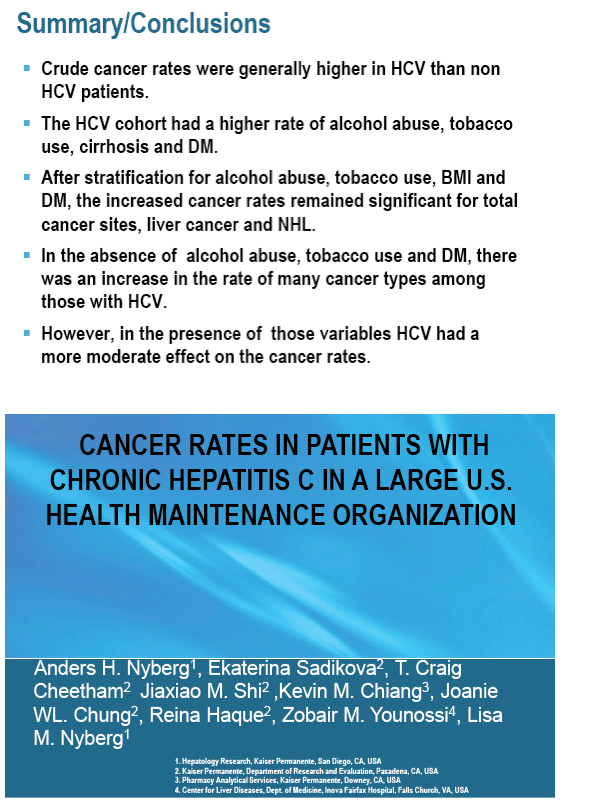
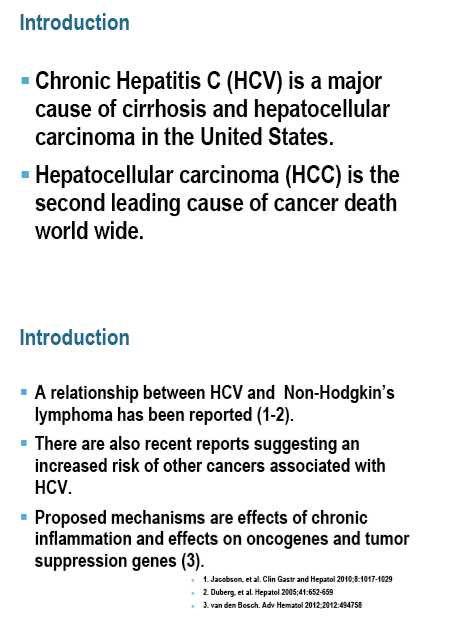
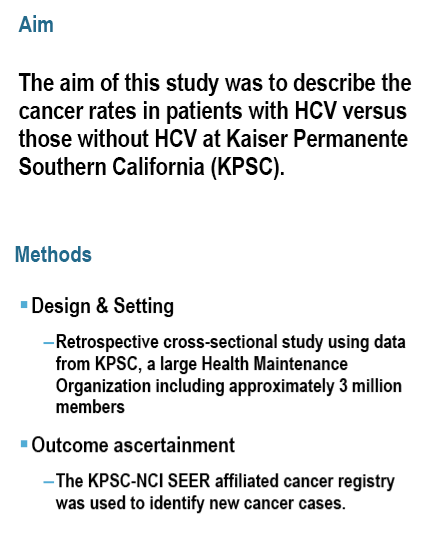
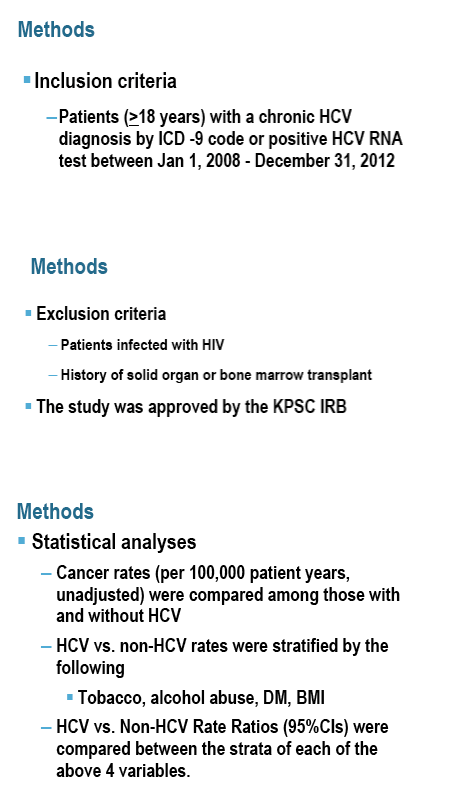
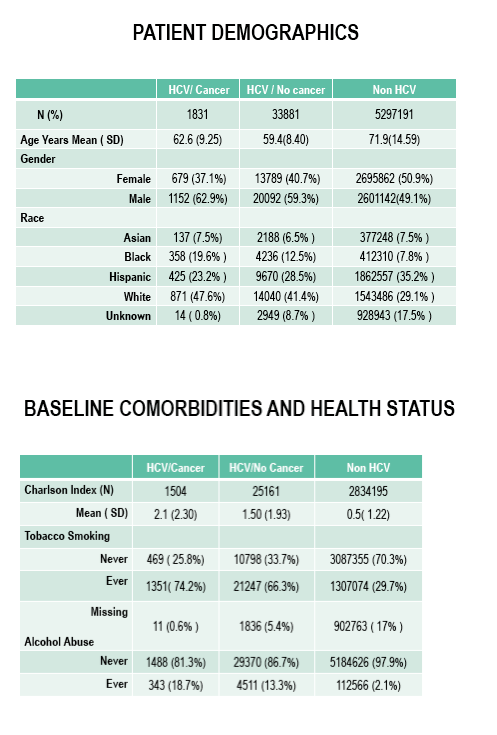
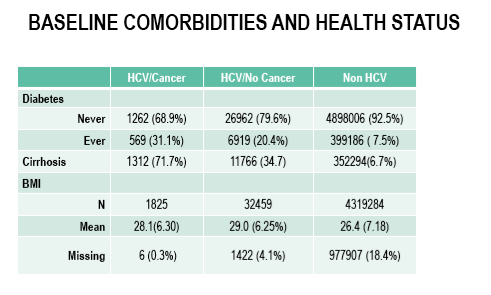
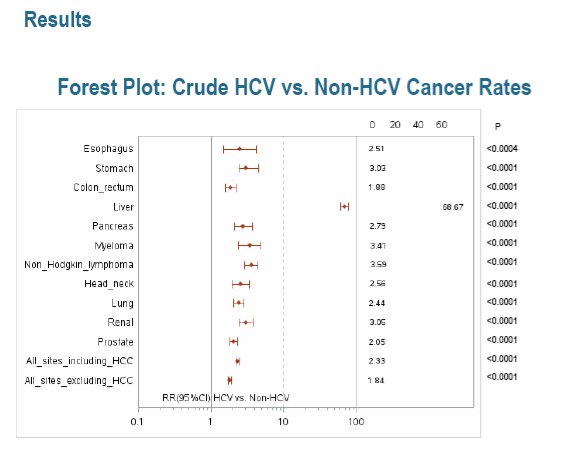
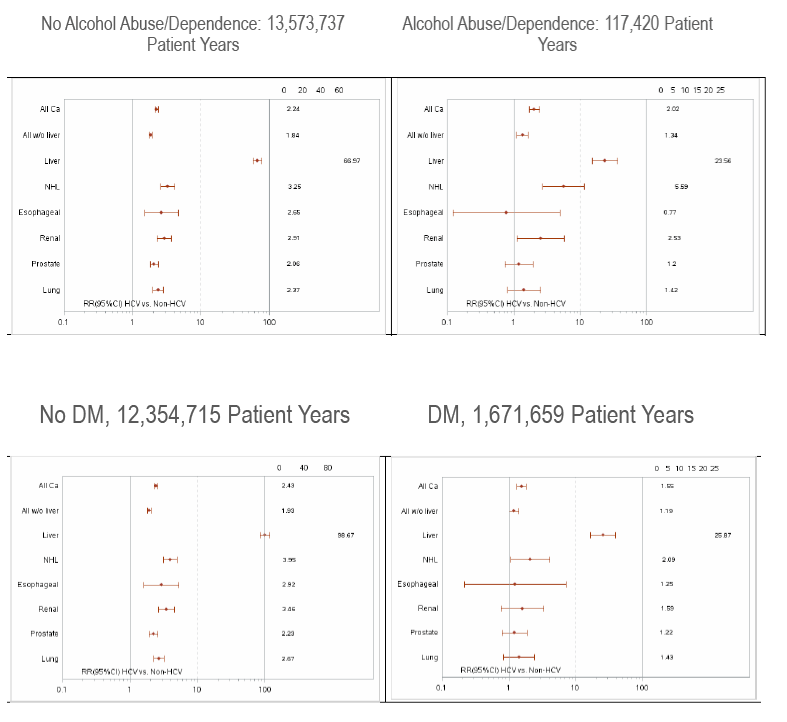
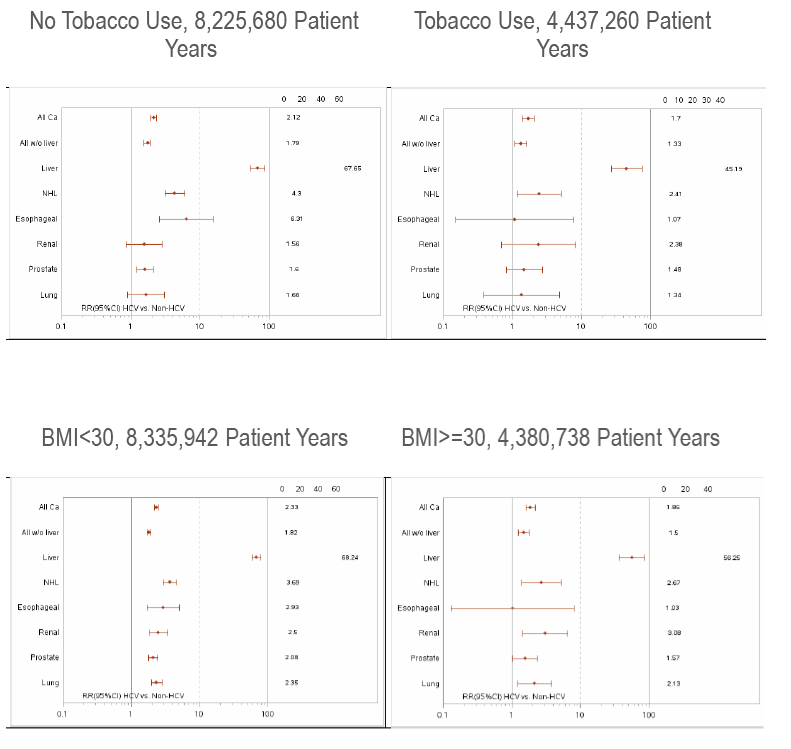
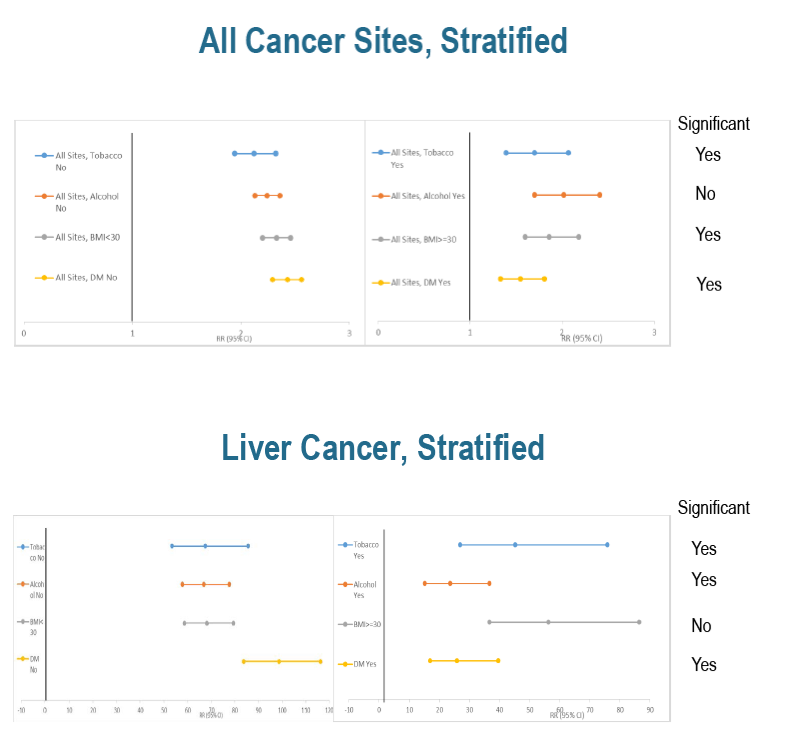
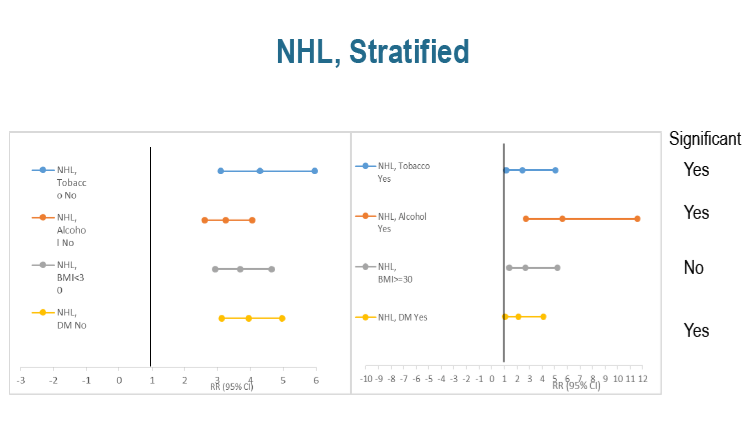
|
| |
|
 |
 |
|
|